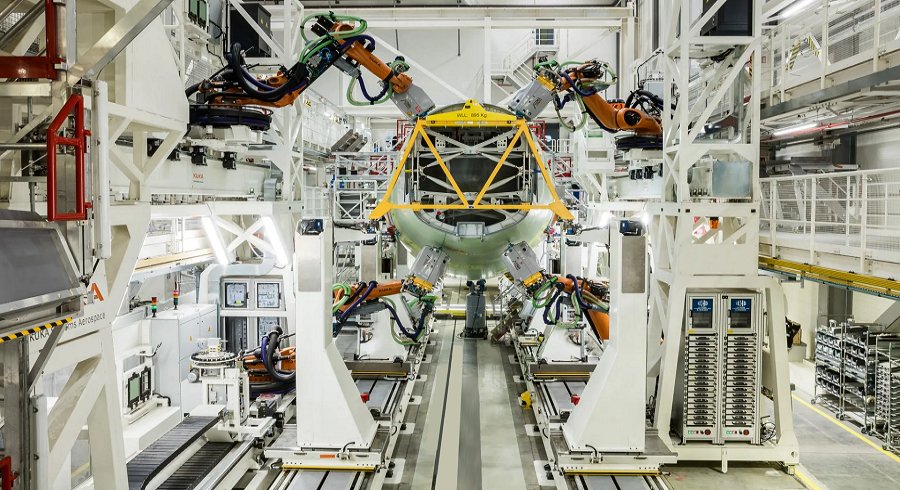HOW EUROPE WANTS TO SAVE
ITS INDUSTRY FACING THE AMERICAN THREAT ? |
|
“Equal treatment” internationally What we want is to ensure equal treatment internationally, said Ursula von der Leyen, as the United States has provided $500 billion in subsidies and tax breaks over a decade for its technologies " own". The proposals made by its president, Ursula von der Leyen, aim in particular to respond to the Inflation Reduction Act, the 430 billion dollar investment and subsidy program adopted by the United States to help American companies. The goal of the European executive is simple: avoid mass relocations and invest in energy transition. "We have a unique opportunity to lead the way with speed, ambition and determination, to secure the lead of EU industry in the zero-carbon technology sector", explained Ursula von der Leyen to the press. The avenues put forward by the Commission will be discussed by the European Parliament, as well as by the 27 Heads of State and Government of the EU during a special Council scheduled for Brussels on 9 and 10 February. The debates promise to be tense, with some countries already rejecting the idea of relaxing the rules surrounding state subsidies. Temporary relaxation of state aid rules for companies The European Commission wants to introduce a "temporary crisis and transition framework" 2025, to relax the rules on state aid, i.e. subsidies granted by national governments to companies. This mechanism will make it possible in particular to simplify the procedures, which are now rigid, for renewable technology projects, but also to grant higher subsidies to align with aid received "by competitors located outside the EU". , in this case in the United States. The European executive also wants to allow member states to grant tax benefits to what it calls "strategic zero-emission sectors", a direct response to the American plan. These proposals worry some Member States, which have fewer resources. They fear a questioning of the functioning of the single European market, with massive subsidies from France and Germany to their companies. "The single market is the key to our competitiveness, and whatever we do, we must avoid a subsidy race," said Margrethe Vestager, Vice-President of the Commission. The exchanges promise to be nourished in particular on the other main axis of the Green Pact, the easing of state aid. The Commission is indeed making in-depth changes, while shielding its system so as not to disadvantage the less wealthy States. Use of existing funds by directing them... On the very sensitive issue of financing, rather than launching new instruments, already a subject of controversy between Member States, Brussels wants to mobilize existing funds from the RepowerEU, InvestEU programs or even the innovation fund. In total, 390 billion euros are available. In the longer term, other funding will be needed. This is why Brussels has launched the idea of a sovereignty fund to finance innovative sectors, also far from achieving unanimity among the Member States, and which should see the light of day by the summer. . "The sovereignty fund must preserve cohesion and the single market against the risks caused by an unequal availability of state aid", justified Valdis Dombrowskis, the European Commissioner for Trade. The Commission remains vague on the contours of this fund, but explains that it could be discussed during the debates on the EU budget, scheduled for summer 2023. Some hope that the mechanism will be built according to the model of the plan European Recovery Plan, which allowed the EU to borrow money on its behalf. A prospect that does not please some countries, such as the Netherlands or Germany. “I am not sure that we need such an instrument,” reacted German Finance Minister Christian Lindner on Monday, reports the Politico site. "There is little chance that the February summit will lead to an agreement on financing", say European sources, the spirits not being yet ripe, despite the urgency of the situation. |
|
| Kelly Donaldson for DayNewsWorld | |
 |
|




